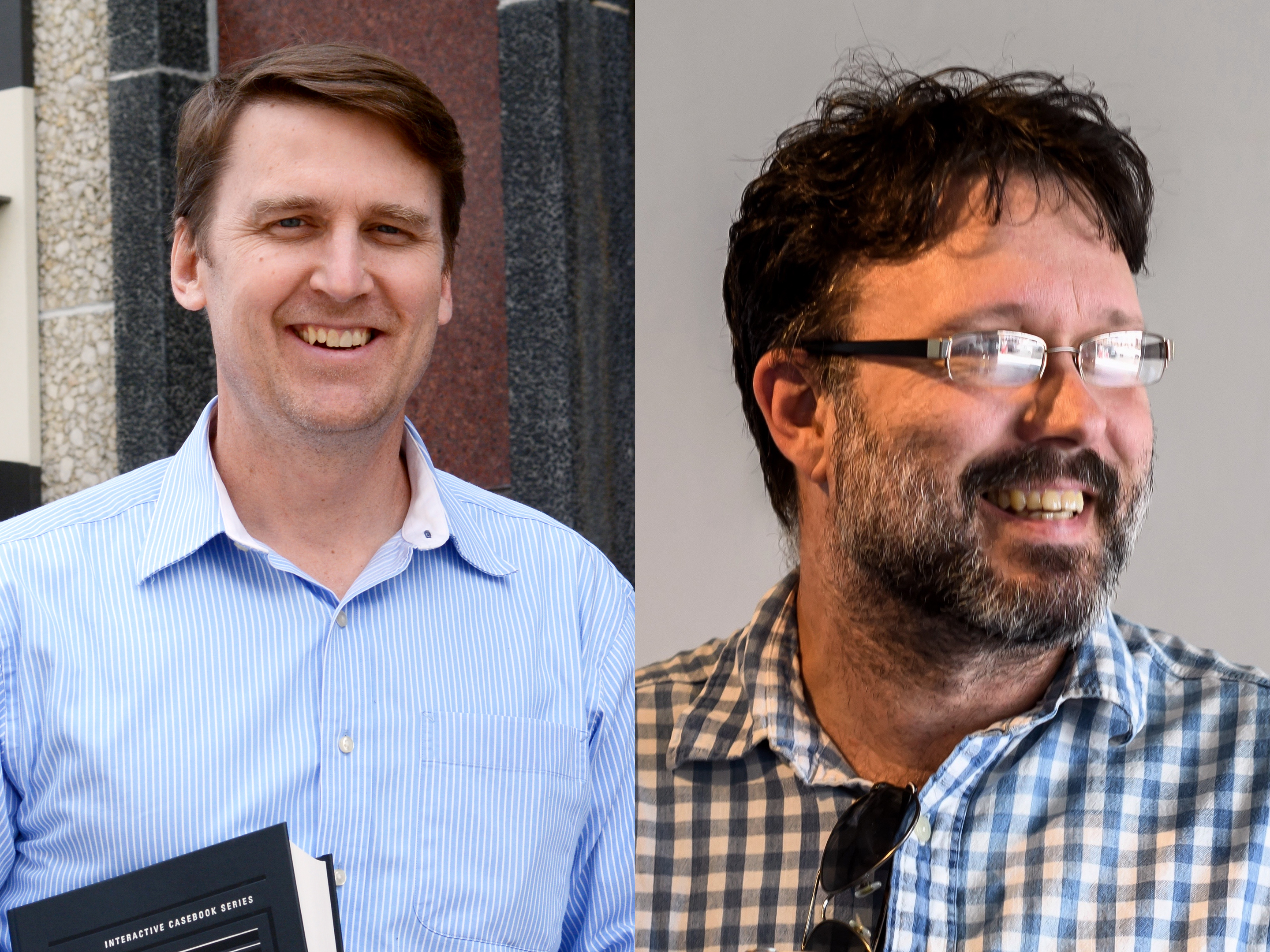Newspaper commentary co-authored by Elon Law Professor Andy Haile and Richard Cox of UNC Greensboro encourages local government offices to take part in efforts to transcribe and digitize bills of sale of those once enslaved in the United States.
The following column appeared in the (Greensboro, N.C.) News & Record, and in an abbreviated format in McClatchy’s syndicated NC Voices feature, via the Elon University Writers Syndicate. Views are those of the authors.
***
‘People Not Property’ gives voice to those lost to history
By Richard Cox and Andy Haile
Since the Colonial Era, local governments have collected names and information related to important milestones in life. Births. Marriages. Deaths. In most parts of the country, at least until Reconstruction, these records were exclusively maintained on behalf of free whites.
What we know about people once enslaved is drawn largely from another type of record: bills of sale. Tucked away in county offices across much of the country, these documents often tell stories with details like names, ages, physical descriptions, and identities of previous and current owners.
As preservationists, researchers, and educators, we’re committed to locating and digitizing local government files that predate the Civil War. We’ve built a grassroots movement in North Carolina, known as the People Not Property Project, to scan such documents from county registers of deeds, transcribe them, and then add them to a searchable database.
In recent years we’ve worked with records tied to people who were sold to the “Gentleman Pirate” Stede Bonnet, of a man named Africa Parker who established what was possibly the first Black-owned brewery & distillery in North Carolina, and of Quakers who may have been buying the freedom for those enslaved.
Now more than ever, it’s important to bring this kind of information to light, whether to help families understand their own place in our history or to produce knowledge that can help all Americans learn more about our earliest years.
The problem facing historians, genealogists, and researchers is one of access. Local records on file around the United States from the 18th and 19th centuries can be faded, hard to read, and mostly offline. This is where we encourage local communities to lobby their elected leaders to encourage participation in the People Not Property Project.
Registers (or recorders) of deeds are unsung heroes, after all. They do more than just file the property deed for your house. They are the guardians of history. And they’re also partnering with the People Not Property Project and their local communities in growing numbers as they learn how they can provide a voice to the voiceless.
Already supported by a grant of nearly $300,000 from the National Historical Publications and Records Commission, the People Not Property Project at UNC Greensboro will expand later this year when we begin work with documents in Washington, D.C., and in Mississippi and Alabama via The Lantern Project, which promotes a similar mission.
We would be remiss not to dispel the notion that slavery was solely a southern practice. For much of our earliest history, slavery also touched the northern colonies, and there undoubtedly are many local offices scattered across New England and the Midwest that show exactly how we’ve oversimplified America’s “original sin.”
Joining the People Not Property Project can also be politically savvy. In at least one contested race for a register of deeds election in North Carolina, the winning candidate made participation in the Project a plank in her campaign. She won and her office is now working to expand our collection.
Registers of deeds don’t need to rely on office staff to participate. In North Carolina, colleges and universities have been a part of our work, notably in Greensboro where a student group at Elon University School of Law has received statewide attention for its strategic and unwavering approach to transcribing hundreds of deeds.
Practically, this is ideal for crowdsourcing. A large volume of information is much more manageable when you have many volunteers who can work remotely from home to review scanned documents before typing out the details into a database.
Students, civic clubs, community volunteers. The possibilities are limitless when a community is dedicated to the preservation of records that might help us trace the lineage of those whose ancestors were once shackled and viewed as property, rather than recognized for their humanity.
We encourage communities to lobby their registers of deeds to join the People Not Property Project. Freedom in this country encompasses more than the right to cast a vote in a democratic system of governance.
It’s the ability to find your place in the world, your authentic identity, based on the history of your ancestors, and what they sacrificed with the hope of a better life for you.
***
Richard Cox oversees the People Not Property Project at the University of North Carolina Greensboro. Andy Haile is a professor of law at Elon University School of Law.



